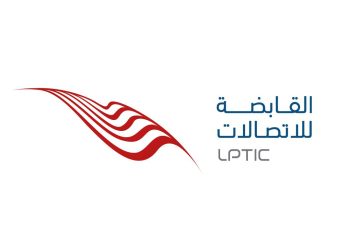By Houda Mzioudet.
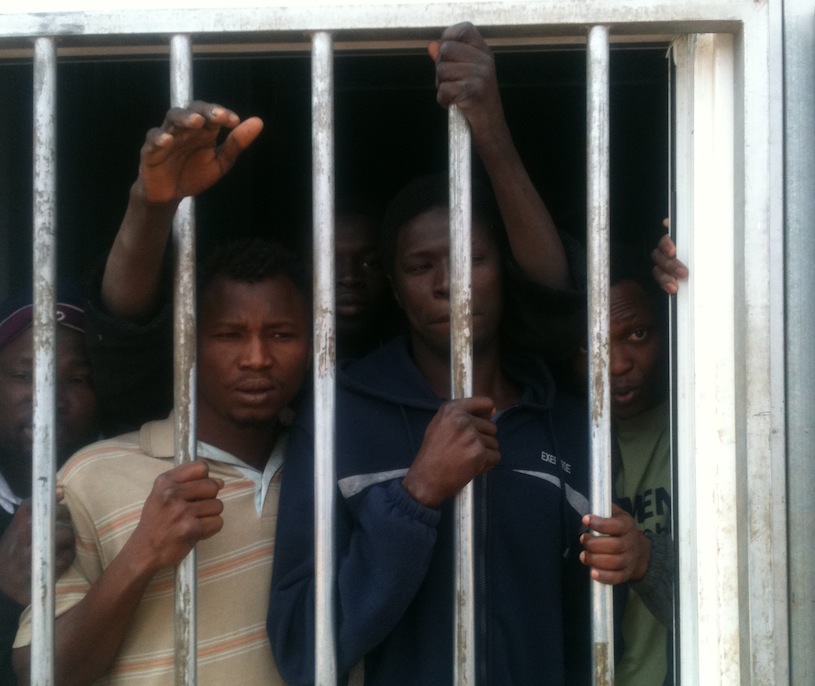
Tripoli, 3 March 2013:
“They may return, be jailed and so on and so forth; that is life. But otherwise . . .[restrict]there will be no illegal immigration.”
“They do not want to send us back home. Look at the food here. They do not want to deport us. We are suffering here. We want to go back to our countries,” an angry Sub-Saharan African illegal immigrant told the Libya Herald from behind bars in the Abu Rashada detention centre for illegal immigrants in Gharian. Another one shouted: “Tell the authorities that people here want to go back home.”
Fifty-three young men from different African countries are crammed into what looks like a rectangular, medium-sized jail cell of the detention centre. Four or five other equally full mobile metal structures serving as cells hold more detainees. The 200 or so residents of the centre have been here between two months and a year awaiting deportation to their countries of origin. Most hail from Niger, Chad, Gambia, Ghana, Ivory Coast and Nigeria and have one goal in common: they came to Libya for work to be able to support their famlilies back home. “You know we come from a very poor countries, that is why we came to Libya,” another one added.
Towards the end of the Libyan revolution, and since, there has been a massive surge of illegal African immigrants into Libya in the absence of secure border controls. Before that, during the revolution, there were signifcant numbers of mercenaries coming in to fight for Qaddafi.
Imed Sagher, in charge of the Gharian’s detention centre, confirmed the presence of some of Qaddafi’s mercenaries in the centre when it held between 1,600 and 1,700 people at its peak when it first opened in January 2012.
The International Organization for Migration (IOM), based in Geneva, has helped send many of the centre’s immigrants back to their countries of origin, Sagher said. Some returned voluntarily on their own with IOM assistance. “But”, Sagher complained, “the process of repatriation has been slow” — as has been the case dealing with the Chadian embassy in Libya. Nigerian nationals have to be be processed through their embassy in Tunis.
“The IOM has to deal with their embassies to get them travel documents to be able to be repatriated quickly. Libya is a rich country and we sometimes repatriate them using Libyan government resources and even give them money, as long as they do not stay here,” Sagher explained. The Department for Combating Illegal Migration (DCIM) gives those who voluntarily return to their countries of origin $600 to start their own business in their homeland, he added. But “they may return, be jailed and so on and so forth. That is life.” he concluded, smiling.
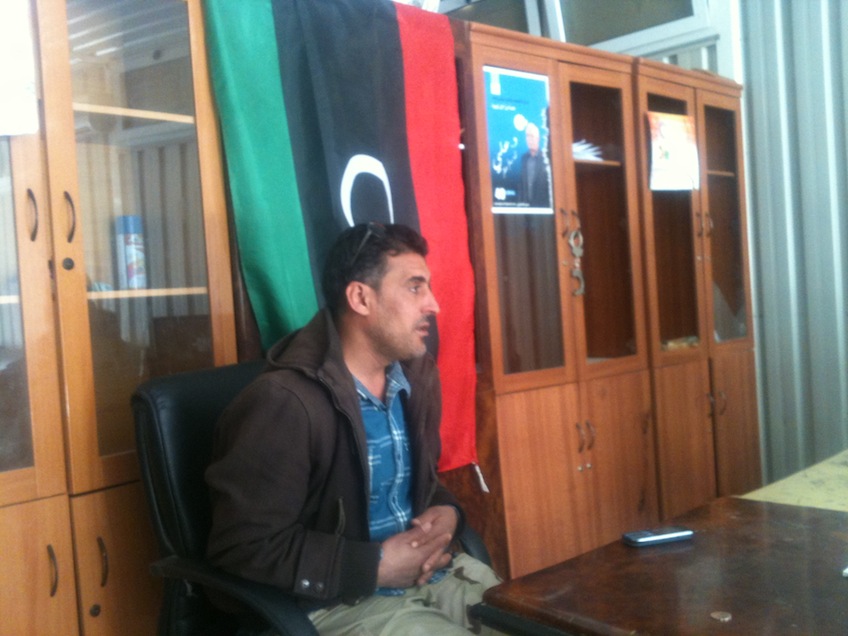
“We want them to raise our spirits, thank us or at least ask how we are doing.“
“One hundred and twenty illegal immigrants cross the southwestern border of Libya daily. Sometimes 200 come in just one day,” Jomaa Saleh Wasini, a Libyan Tebu military officer and member of Um Al-Aranib Martyrs Battalion at the Al-Wigh Military Base, just north of the Libya-Chad-Niger border, told the Libya Herald. Libya’s 2,000-kilometer-long southern border, with Sudan, Niger and Chad, has recently become popular with hundreds of sub-Saharan Africans in search of job opportunities in Libya or hoping to go on to Europe. But entering Libya illegally is not without risk.
Wasini and his colleagues at the base return migrants entering Libya illegally to the town of Qatrun further north on the same day they are caught. Sometimes they are kept overnight in doorless, run-down rooms on the base and therefore have to be fed. Other times they are transferred to Sebha.

In June 2012, around 460 illegal immigrants from Chad were brought to Al-Wigh. Wasini expressed his gratitude for the IOM’s assistance to them: “They came five or six times to monitor the situation here. They helped us with our mission by providing the migrants with sheets and blankets.”
This work is being done by young and middle-aged volunteers – Libyan Tebus from the south-west. On our way south to the Al-Wigh Military Base, we met a 17-year-old who said he was on holiday from school and was volunteering, along with other former Tebu revolutionsaries to man the border crossing. The outpost was more like a hut, with almost no amenities to maintain it. There was a can full of water which one young man claimed they had to walk several miles to bring, a light bulb connected to an electric generator and a few chairs.
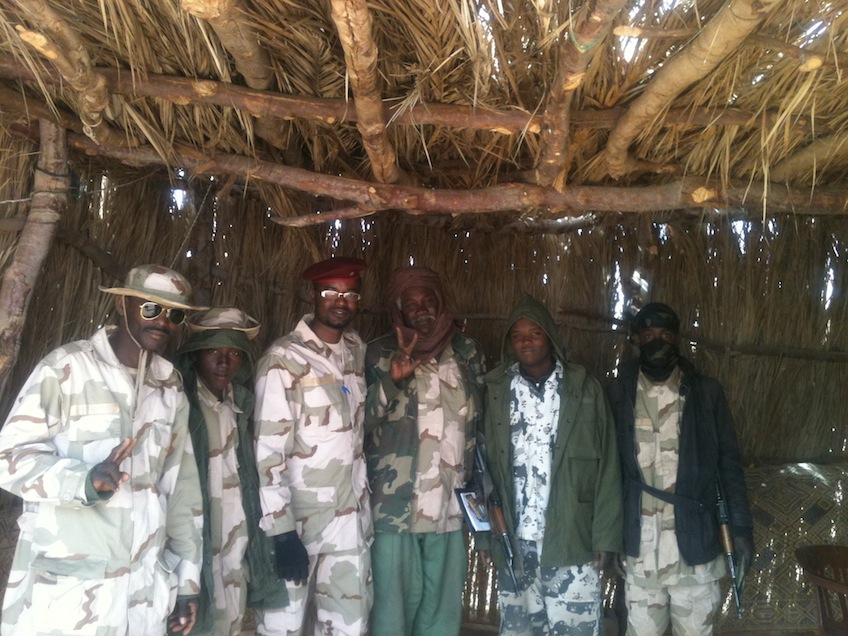
Wasini stated that he and his colleagues work in coordination with the DCIM and the Ministry of Interior (MI). They carry out daily patrols to prevent illegal immigrants coming into Libya and alcohol being smuggled from Niger and Chad. The Al-Wigh base has two warehouses where bottles of alcohol and around 20 kilos of drugs seized from smugglers were stored, waiting for Libyan authorities to come and eventually destroy them.
He said they use their own private resources to stop smugglers, many of whom are Libyans from towns in Fezzan such as Sebha. “In 2011, we captured 15 qintars [750 kilos] of drugs” Wasini insisted. And he expressed his frustration with the working conditions in the border post. He wished that the Libyan authorities would visit them. “We want them to raise our spirits, thank us or at least ask how we are doing.”
However, Libyan authorities, the successive governments of the National Transitional Council and the General National Congress, have found it extremely hard to protect the country both from the outside and the inside. The presence of militias in the main cities was seen to pose a stronger challenge.
However, that is changing. In January 2013, in the oasis border town of Ghadames, the Libyan Prime Minister Ali Zeidan met with his Tunisian and Algerian counterparts for a regional summit on border control. Earlier, he had visited Niger, Chad and Sudan for talks on the same issue. A decision was taken to close the border with Algeria, Niger, Chad and Sudan and declare the south of Libya a military zone. This was a move towards insuring stability in an area that Libyan authorities had struggled to keep under control since the fall of Qaddafi’s regime.
This decision has been rejected by Libyan Tebus in the south. They do not see it as necesary or as a measure that can effectively work in the short or the long run.
“It is not an easy situation. Libya has lots of challenges as a newly-emerging democracy.“
According to an IOM project officer in Tripoli, “irregular migration” (the term used by the organisation) is not a problem by itself. “The issue is that somebody is choosing that way of coming illegally. People have the right to move. We are assisting migrants by doing assisted voluntary return to their countries of origin if they voluntarily want to return. We do not take part in any forced removals but we understand every state’s right to choose who can be in their land and who cannot be.”
The IOM has developed software for a biometric system that can keep track of who is being detained and who is not. It is “for the residents’ well-being primarily and not for law-enforcement purposes,” the IOM official insisted.
“It is not an easy situation. Libya has lots of challenges as a newly-emerged democracy.
It is a process. It takes time to put these facilities in place to have what migrants and detainees need there,” the officer concluded.
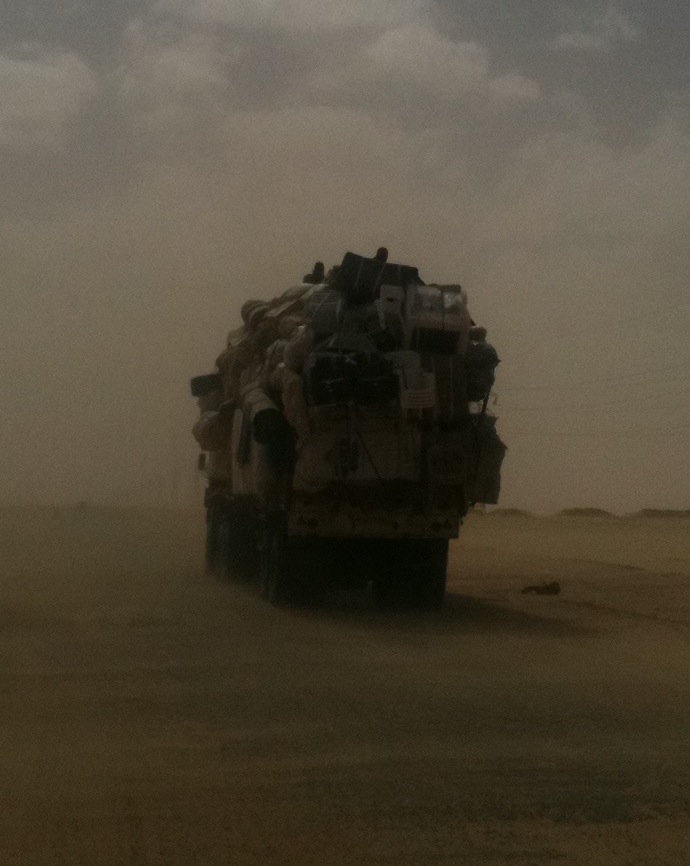
Besides assisting with the voluntary return of immigrants to their countries of origin, the IOM also carries out medical checks in detention centres to see who is fit to travel. This is in addition to spot-checks to the detention centres across Libya to monitor the situation and see to the needs of the residents. During the Libya Herald’s visit to the Gharian detention centre, we were told by Imed Sagher, the head of the centre, that the condition of the its “temporary” residents has improved significantly in the last few months.
In the period between 1 October 2011 and 31 December 2012, the IOM has assisted the voluntary return of 6,809 nationals from 20 sub-Saharan African countries. Most returnees came from Niger – 2,238. The number of all returnees was 1,876 by December 2011 and 4,933 more returned by December 2012. November 2011 saw the peak of migrants returning to their home countries.
In Murzuk, town council president Mohamed Adam told the Libya Herald that south-western towns are powerless in halting African migrants from entering Libya. While the town is not directly affected by the issue, it is a transit point for both seasonal migrant workers and illegal migrants who go to Sebha, then Tripoli and sometimes try to reach Europe. “It is hard to deal with it. What shall we do? We have an immense Sahara desert of about 2,000 kilometres to Kufra in the east.”
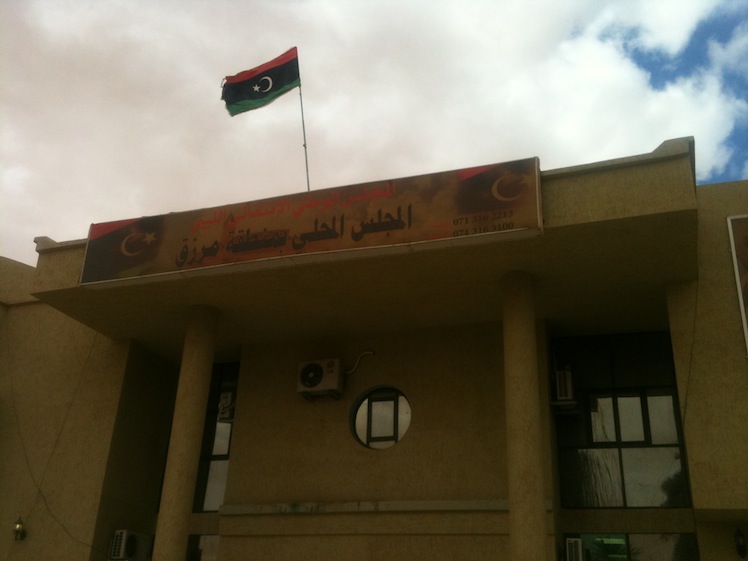
Houda Mzioudet travelled to Al-Wigh, Murzuk, Qatrun and Gharyan in the period between January 27 and February 21, 2013. [/restrict]










